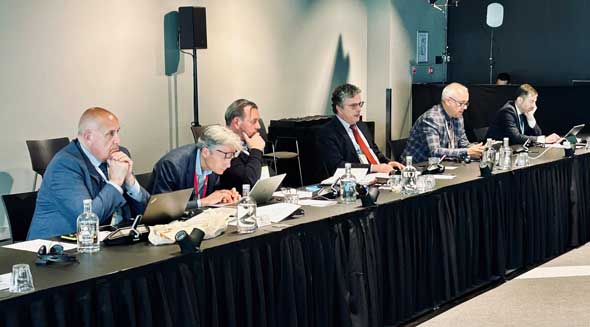Ombudsman’s Office participates in the General Assembly and Annual Conference of the Global Alliance of National Human Rights Institutions
Date of article: 16/05/2024
Daily News of: 21/05/2024
Country:  Portugal
Portugal
Author:
Article language: en
The Deputy Ombudsman Ravi Afonso Pereira, and the Adviser Sofia Duarte, took part in the General Assembly and Annual Conference of the Global Alliance of National Human Rights Institutions (GANHRI), held between 6 and 8 May in Geneva.
More than 200 representatives of national human rights institutions (NHRIs), UN agencies and civil society took part in the event, where the debate centred on the growing threats to human rights, peace and global security. There was further discussion on the relationship between human rights, climate change and business activity, as well as threats to online civic space and the protection of human rights defenders.
This year’s NHRI Knowledge Exchange sessions highlighted the role of NHRIs as human rights defenders, in the protection of displaced and stateless people, as well as in the prevention of and response to torture and inhumane treatment, in the context of the 40th anniversary of the UN Convention against Torture. At the same time, more than 80 NHRIs made a commitment at the Annual Conference to step up their efforts to protect human rights in the context of their business activities. The final Declaration can be consulted here.
GANHRI was created in 1993 with the aim of coordinating and supporting NHRI activities around the world, as a partner of the United Nations. Based in Geneva, it currently brings together around 120 national institutions and is one of the largest human rights networks on a global scale. Being recognised as an NHRI with A status, the Ombudsman acts as a link between the Portuguese system and the international system for the promotion and protection of human rights. From the outset, it cooperates with the United Nations High Commissioner for Human Rights in the assessment of the fulfilment of the Portuguese state’s obligations, which is regularly carried out by the Charter bodies, namely the Human Rights Council, and by the treaty bodies, presenting alternative reports and formulating recommendations.





